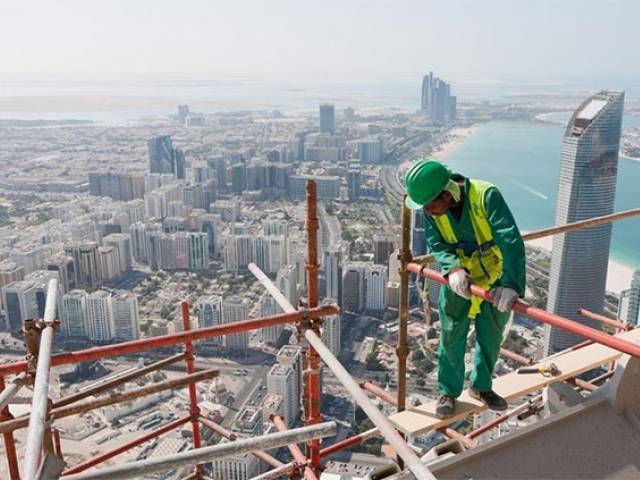
The former government, whose term ended on May 31 this year, barred the non-filers from purchasing property valuing above Rs5 million ($43,250) in the budget for fiscal year that started on July 1, 2018. The restriction has prevented the flow of billions of dollars in investments into the sector, say market players.
“Pakistan receives around 40-50% of total remittances in the real estate sector,” Pakistan Real Estate Investment Forum President Shaban Elahi said while talking to The Express Tribune.
According to the government’s own estimates, Pakistan received around $8-10 billion of total remittances of $20 billion in property and real estate sector from overseas Pakistanis, he said.
“If the government does not find a workable solution to the restriction, then the overseas Pakistanis may find other investment avenues around the world. This will deprive Pakistan of a significant amount of remittances at a time when its dollar reserves have depleted to a critical level that equals only around two months of import bill,” he cautioned.
Also, the condition of becoming a tax return filer may promote illegal transactions of remittances (hawala/hundi) that will again hit receipts through official channels including banks.
He suggested that the authorities concerned should consider the National Identity Card for Overseas Pakistani (NICOP) as a valid document to allow expatriate Pakistanis to invest heavily in the real estate sector. Becoming a tax return filer at home would mean that overseas Pakistanis would face double taxation as they were already paying tax abroad, Elahi added.
However, he was of the view that the government may continue to keep the tax return filer condition for local residents for buying property worth more than Rs5 million.
UK, US contribute more as Pakistan’s remittances increase 2.3%
Citing examples of economies of Dubai (UAE), Turkey and Canada, the investment forum president pointed out that they had invited investors from around the world to invest and live in these countries along with their families.
“The invitation may also encourage overseas Pakistanis to avail themselves of the opportunity if investment conditions are not eased in Pakistan,” he cautioned.
Pakistanis are already leading investors in the United Arab Emirates’ real estate sector. Recently, Dubai has offered 10-year visa to investors and their families. Similarly, Canada offers nationality against investment of $0.8 million.
He recalled that Canada was offering residency against an investment of $150,000 in 1997-98. At those times, it was offering nationalities without checking the source of income for the investment.
Remittances touch seven-month high at $1.77 billion in March
These days, Canada is making similar offers against an investment of $800,000 but it is thoroughly scrutinising the source of income.
Pakistan should adopt the Canadian model of attracting investment. “At this point in time when the country is in dire need of dollar reserves, it should avoid scrutinising overseas Pakistanis to attract their investment. Later, it may do so after taking the reserves to an appropriate level,” he suggested. Pakistan’s foreign exchange reserves with the State Bank of Pakistan dropped to a four-year low of $10.03 billion as on May 25, 2018 due to low inflows on account of sluggish exports and workers’ remittances.
Over-reliance on remittances may hit ability of industries, commercial entities
With this, the country’s goods-import capacity has dropped to an alarming level of around two months at present. Reserves that cover three months of imports are considered satisfactory.
Published in The Express Tribune, June 5th, 2018.
Like Business on Facebook, follow @TribuneBiz on Twitter to stay informed and join in the conversation.

















COMMENTS (2)
Comments are moderated and generally will be posted if they are on-topic and not abusive.
For more information, please see our Comments FAQ